
Exciting new series on “Voice, Body and Movement for Lawyers – How to connect with the jury and find Justice Through Dramatic Technique!”
Click here to find out more
Smartphones are in reality powerful computers that store massive amounts of data, potentially including information that lawyers are required to keep confidential under the Rules of Professional Conduct.
This program will discuss the data stored by smartphones, and the dangers created by apps that can access information that is supposed to remain confidential, including names, addresses, dates of birth, Social Security numbers and more.
The program will focus on how lawyers can protect confidential information and information about clients under Rules of Professional Conduct 1.3, 1.4 and 1.6. In addition, attendees will learn how with a few easy steps they can secure their devices and deny access to apps that could improperly access and use the information stored on the phones.
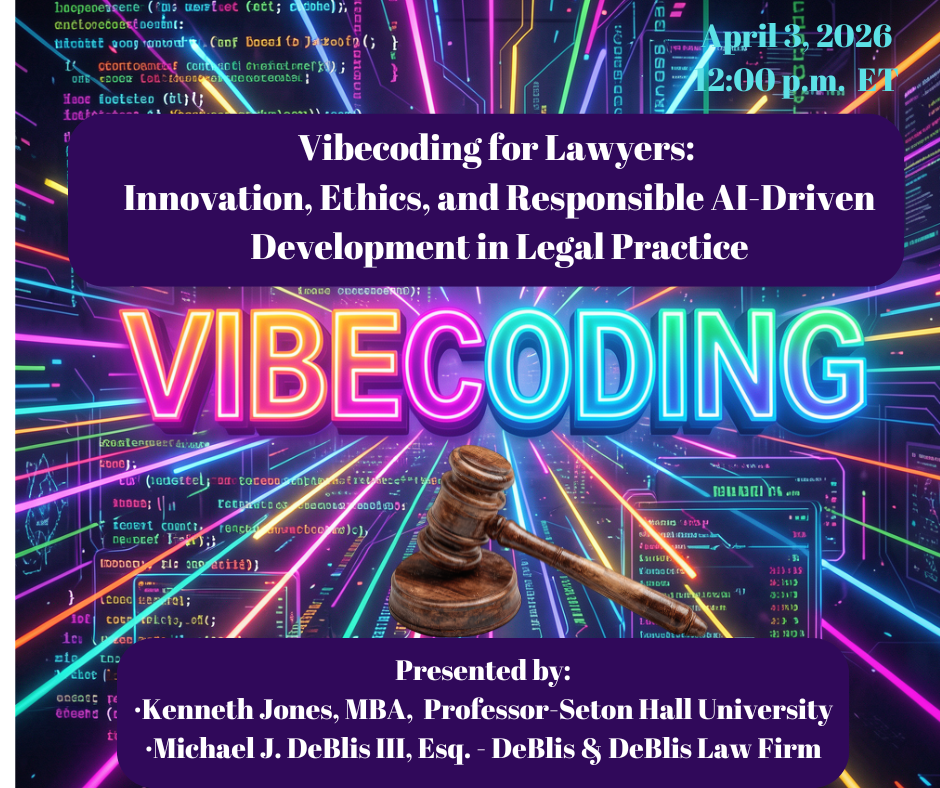
This program provides attorneys with a practical and ethical framework for understanding and respons...
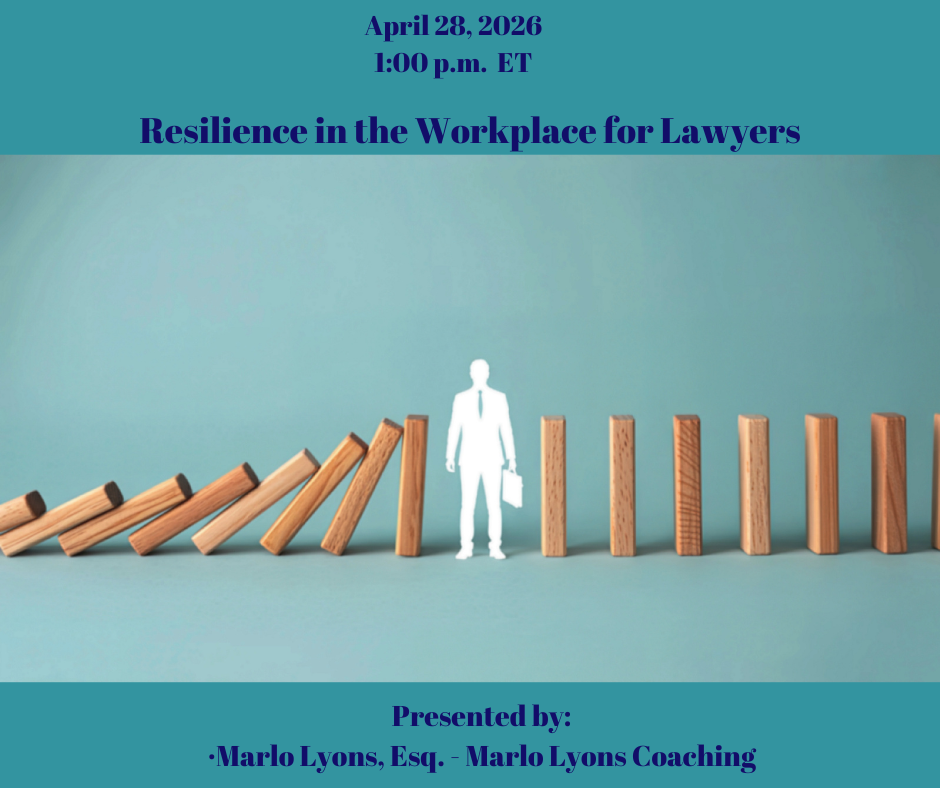
Resilience in the Workplace, delves into the critical importance of resilience in navigating the cha...
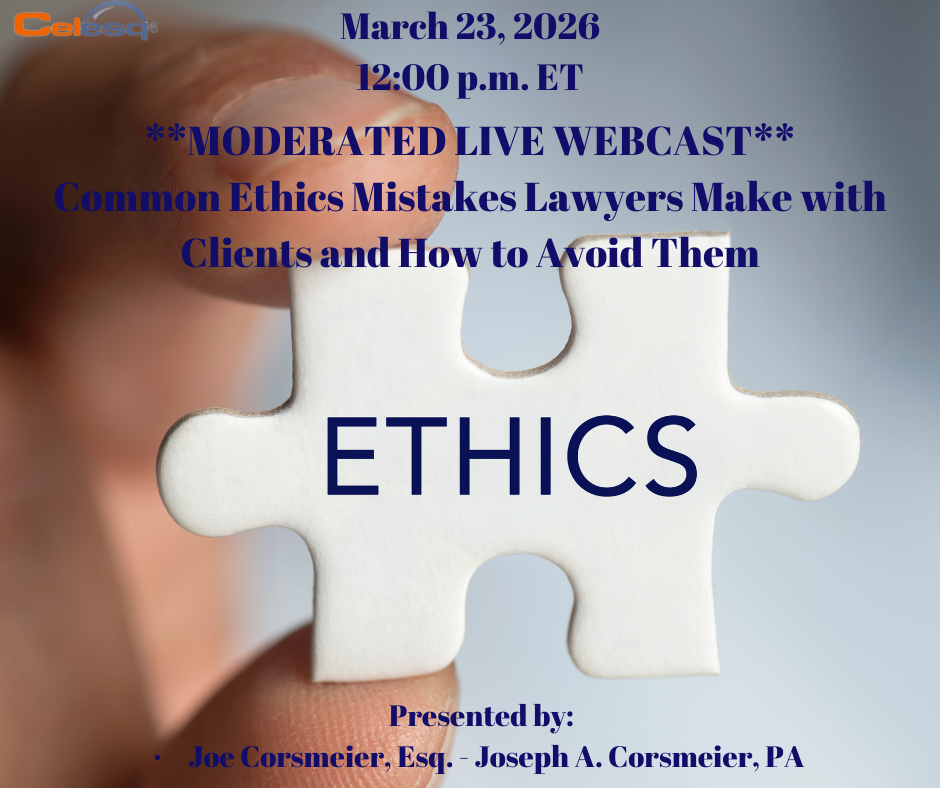
Many lawyers may not fully understand the Bar rules and ethical considerations regarding client repr...
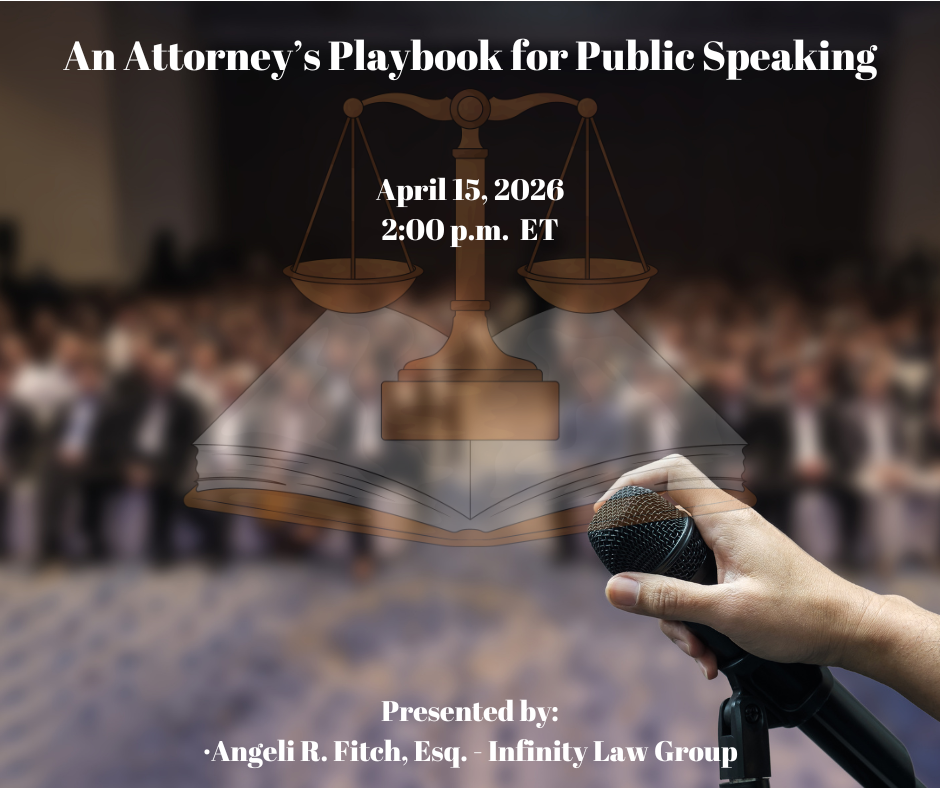
Attorneys are judged every time they speak—in client meetings, depositions, hearings, negotiat...

Boundaries and Burnout: The Hidden Crisis in Law is a 60-minute California MCLE Competence Credit pr...
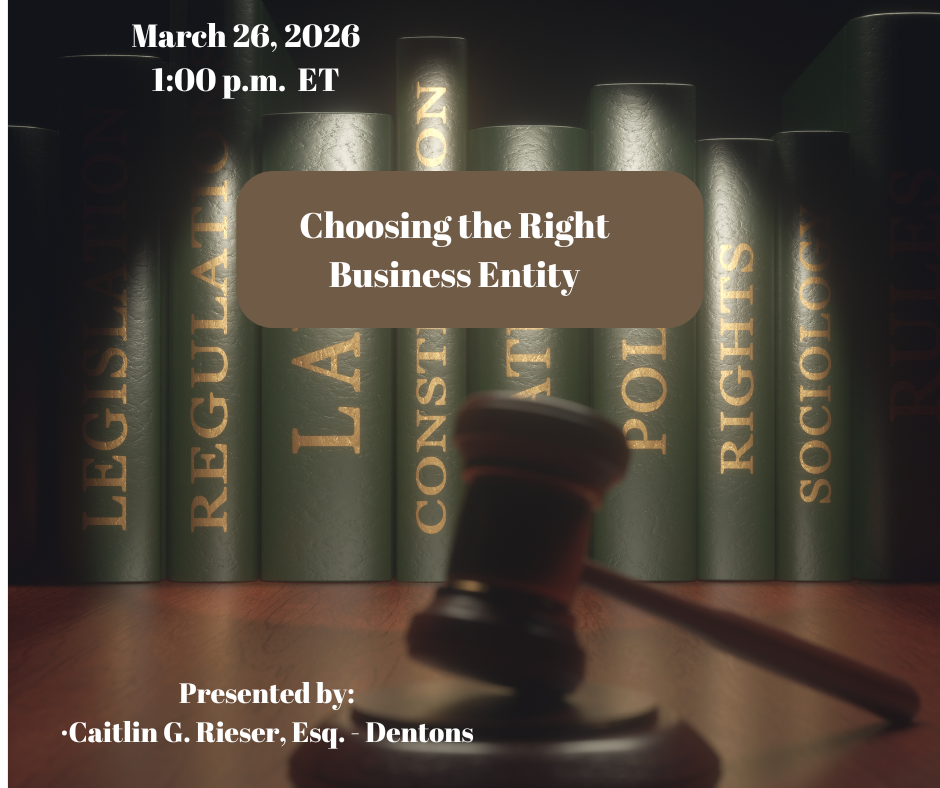
In “Choosing the Right Business Entity,” I will walk through the issues that matter most...
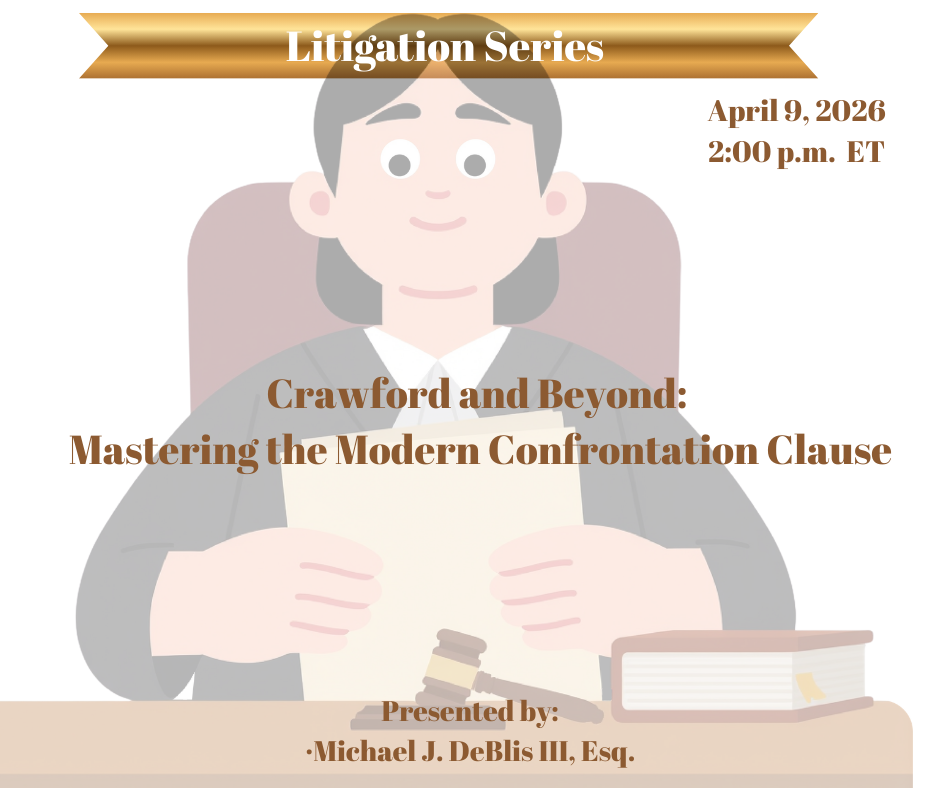
This program provides a comprehensive analysis of the Sixth Amendment Confrontation Clause as reshap...
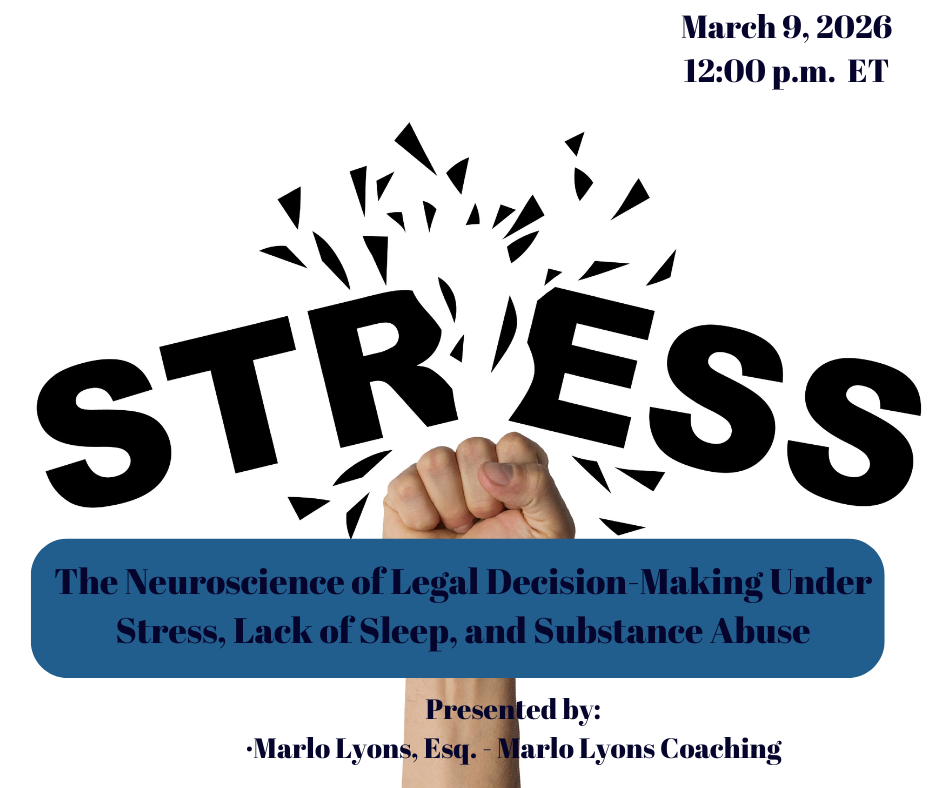
This dynamic and compelling presentation explores how chronic stress, sleep deprivation, and substan...

The landscape of global finance is undergoing a seismic shift as traditional assets migrate to the b...
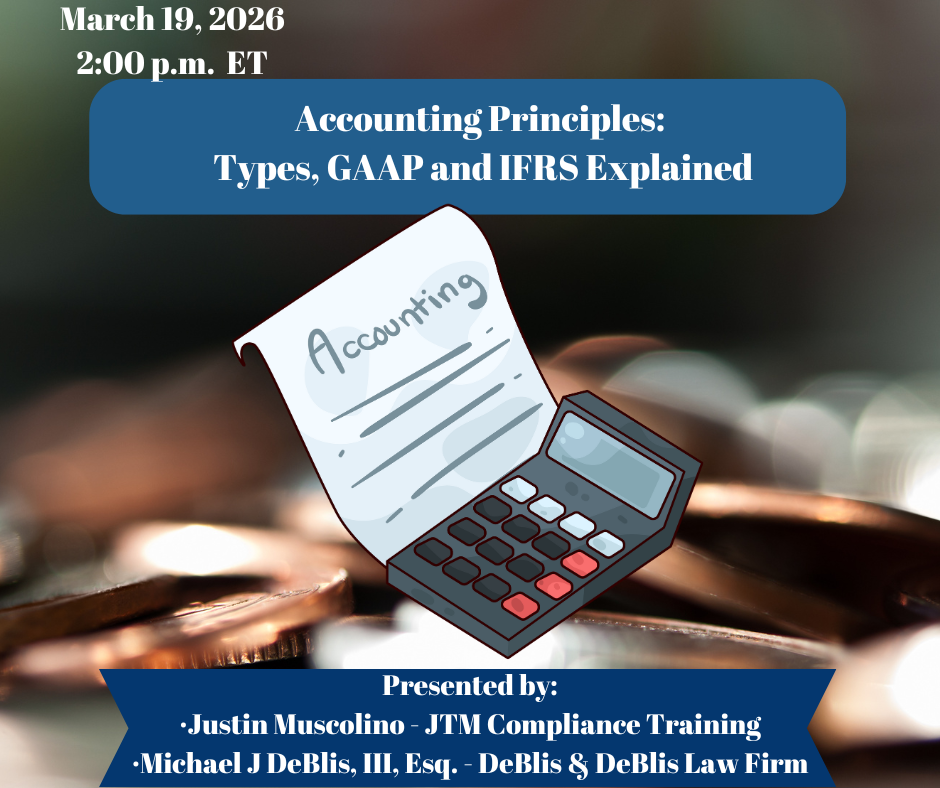
Attorneys will receive a comparative analysis of GAAP and IFRS with emphasis on cross-border legal c...